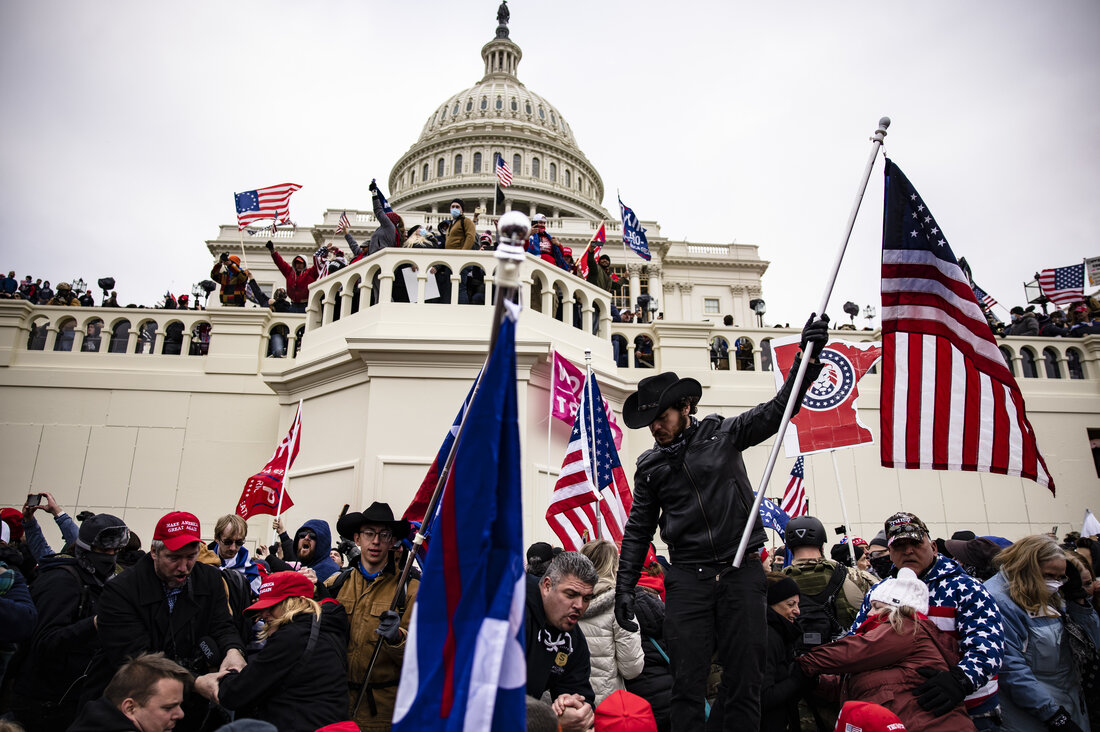A new report by Justice Department Inspector General Michael Horowitz has revealed critical gaps in the FBI’s handling of confidential human sources (CHS) during the events leading up to and during the January 6, 2021, breach at the U.S. Capitol. The findings highlight a significant lapse in the Bureau’s intelligence collection and sharing processes, raising questions about its ability to effectively assess and respond to such pivotal events.
Key Findings: The Role of Confidential Sources
The report disclosed that while the FBI officially assigned only three confidential sources to monitor the January 6 rally, an additional 26 sources were present in the crowd. These sources were connected to multiple FBI field offices and were not specifically tasked with monitoring the Capitol events.
Among these 26 sources:
- 4 entered the Capitol building during the breach.
- 13 entered restricted areas surrounding the Capitol, which had been secured in preparation for the certification of the Electoral College votes.
- 9 sources did not enter any restricted zones or engage in illegal activity.
Notably, none of these sources have been prosecuted, and the report found no evidence that FBI informants incited violence or organized any part of the day’s events.
Intelligence Gaps and Missed Opportunities
Despite recognizing the potential for violence, the FBI failed to adequately prepare. One critical omission identified in the report was the Bureau’s failure to canvass its field offices for intelligence. According to Deputy Director Paul Abbate, this basic step could have uncovered vital information about potential threats.
While field offices did gather valuable intelligence from confidential sources—such as plans to “storm the building” or form a perimeter around the Capitol—this information was not effectively relayed to the FBI’s Washington Field Office (WFO) or other law enforcement agencies. This lack of coordination severely undermined the ability to preempt the breach.
A Reactive Posture
The Inspector General criticized the FBI for taking a reactive rather than proactive approach. Despite producing detailed intelligence products for the January 20 presidential inauguration, the Bureau failed to create similar assessments for the January 6 Electoral College certification.
FBI officials had previously assured Congress that extraordinary measures were taken to prepare for January 6. However, Horowitz’s findings contradict these claims, portraying an agency that was unprepared for the scale and intensity of the events.
Broader Implications
The report raises significant concerns about the FBI’s intelligence practices, particularly in high-stakes situations. The presence of so many confidential sources—some of whom entered restricted areas—underscores the complexity of managing informants while maintaining operational integrity.
While the report absolves the FBI of directly contributing to the violence, it emphasizes the need for better coordination and communication across field offices and with partner agencies. Horowitz’s findings highlight systemic issues that, if unaddressed, could hinder the Bureau’s ability to respond to future threats effectively.
Moving Forward
The Justice Department’s report serves as a stark reminder of the challenges facing federal agencies tasked with safeguarding national security. The FBI has since pledged to implement reforms aimed at improving intelligence collection and sharing practices. Whether these changes will be sufficient remains to be seen, but the events of January 6 have underscored the dire consequences of intelligence failures.

